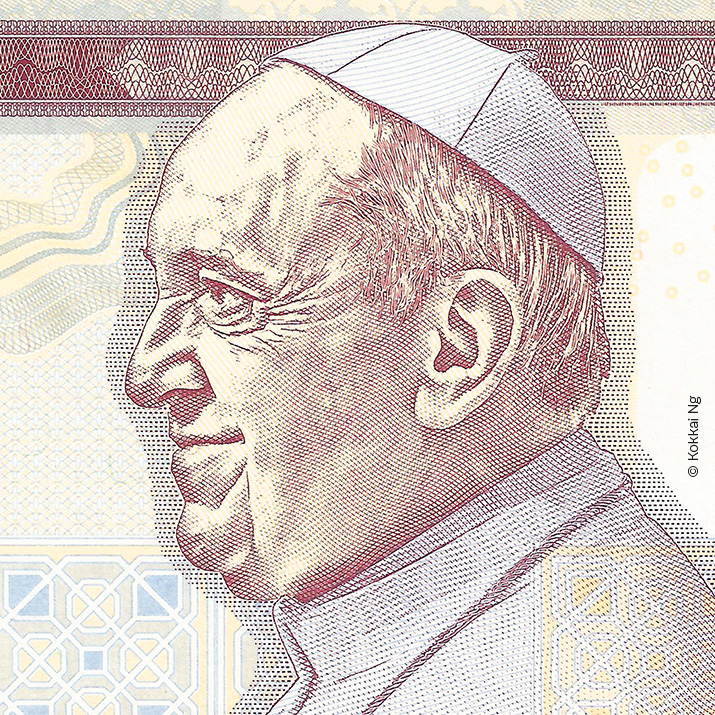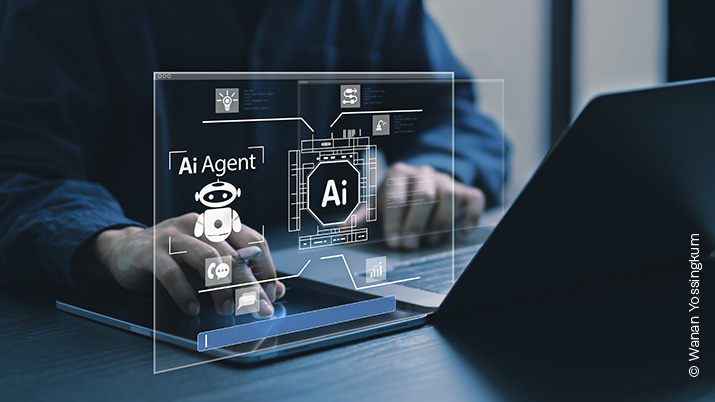Artificial Intelligence and Peace
Among the latest public reflections of Pope Francis, the message for the 57th World Day of Peace, to be celebrated on 1 January 2024, seems to stand out. A line of reasoning that comes across as an attempt to illuminate the future with the light of responsibility, if not hope. Entitled ‘Artificial Intelligence and Peace’, the text lucidly addresses the challenges posed by artificial intelligence (AI), recognising its extraordinary potential but also its profound risks. AI, Francis summarised, is the fruit of human ingenuity and a sign of the dignity that God has bestowed on Man. But all technological progress, if not guided by human and shared values, risks becoming an instrument of inequality and conflict. In this way he reinterpreted the history of intelligence as a gift and a duty. Technology, he said, is not neutral: it always carries a vision of the world with it. He thus called for a profound ethical reflection, capable of orienting digital development to the common good, to justice and to Peace. 'Rightly,' he wrote, 'we rejoice and are grateful for the extraordinary achievements of science and technology, thanks to which countless evils that afflicted human life and caused great suffering have been remedied. At the same time, techno-scientific advances, by making it possible to exercise hitherto unprecedented control over reality, are placing in human hands a vast array of options, including some that may pose a risk to our survival and endanger our common home'.
And the Pope was specific when he pointed out that 'the remarkable advances in new information technologies, particularly in the digital sphere, thus offer exciting opportunities and grave risks, with serious implications for the pursuit of justice and harmony among peoples. Some urgent questions must therefore be asked. What will be the medium- and long-term consequences of new digital technologies? And what impact will they have on the lives of individuals and society, on international stability and on Peace?’
In his message he emphasised the urgency of shared regulations, ethical oversight bodies and education on technological responsibility. "Realities are greater than ideas”. [9] No matter how prodigious our calculating power may be, there will always be an inaccessible residue that evades any attempt at quantification," he wrote. Moreover, the large amount of data analysed by artificial intelligences is not in itself a guarantee of impartiality. When algorithms extrapolate information, they always run the risk of distorting it, replicating the injustices and prejudices of the environments in which it originates. The faster and more complex they become, the more difficult it is to understand why they produced a certain result. "Intelligent" machines," he added, "may perform the tasks assigned to them with ever greater efficiency, but the purpose and the meaning of their operations will continue to be determined or enabled by human beings possessed of their own universe of values. There is a risk that the criteria behind certain decisions will become less clear, responsibility for those decisions concealed, and producers enabled to evade their obligation to act for the benefit of the community. In some sense, this is favoured by the technocratic system, which allies the economy with technology and privileges the criterion of efficiency, tending to ignore anything unrelated to its immediate interests.’
The Pontiff then denounced the risks of digital manipulation, systematic surveillance, algorithmic discrimination and the militarisation of AI.
But at the same time, secondly, he also offered a message of hope: if used responsibly, artificial intelligence can contribute to social justice, integral human development, and the building of Peace. He even went so far as to speak of 'algor-ethics', calling for a new dialogue between science, law, politics and spirituality. And he called for an international treaty to regulate the use of AI, also involving the voices of the poorest and most marginalised, who are often excluded from decision-making processes. 'Ethical considerations,' he wrote, 'should also be taken into account from the very beginning of research, and continue through the phases of experimentation, design, production, distribution and marketing. This is the approach of ethics by design, and it is one in which educational institutions and decision-makers have an essential role to play.
The Pope's words have resonated with several contemporary thinkers. Philosopher Luciano Floridi points out that although artificial intelligence is a powerful technology, it does not possess consciousness or awareness. Therefore, the responsibility for decisions concerning its use lies entirely with human beings. For his part, sociologist Zygmunt Bauman, notes that technology does not make us more human, but offers us a test case to prove how human we already are. In Liquid Love (2003), for example, he analyses how digital communication can make emotional ties even more fragile, pointing out that virtual proximity tends to separate communication and relationship, making human connections more superficial and brief.
In his message of 1 January 2024, Francis also spoke to young people, educators, legislators, and technology creators. And he concluded with a call not to let AI increase inequality, seeking instead to turn these new technologies into an opportunity to develop solidarity.
Just days after his passing, this appeal echoes as a legacy: to build a world in which artificial intelligence and all forms of human knowledge serve as instruments of Peace, not of domination.








